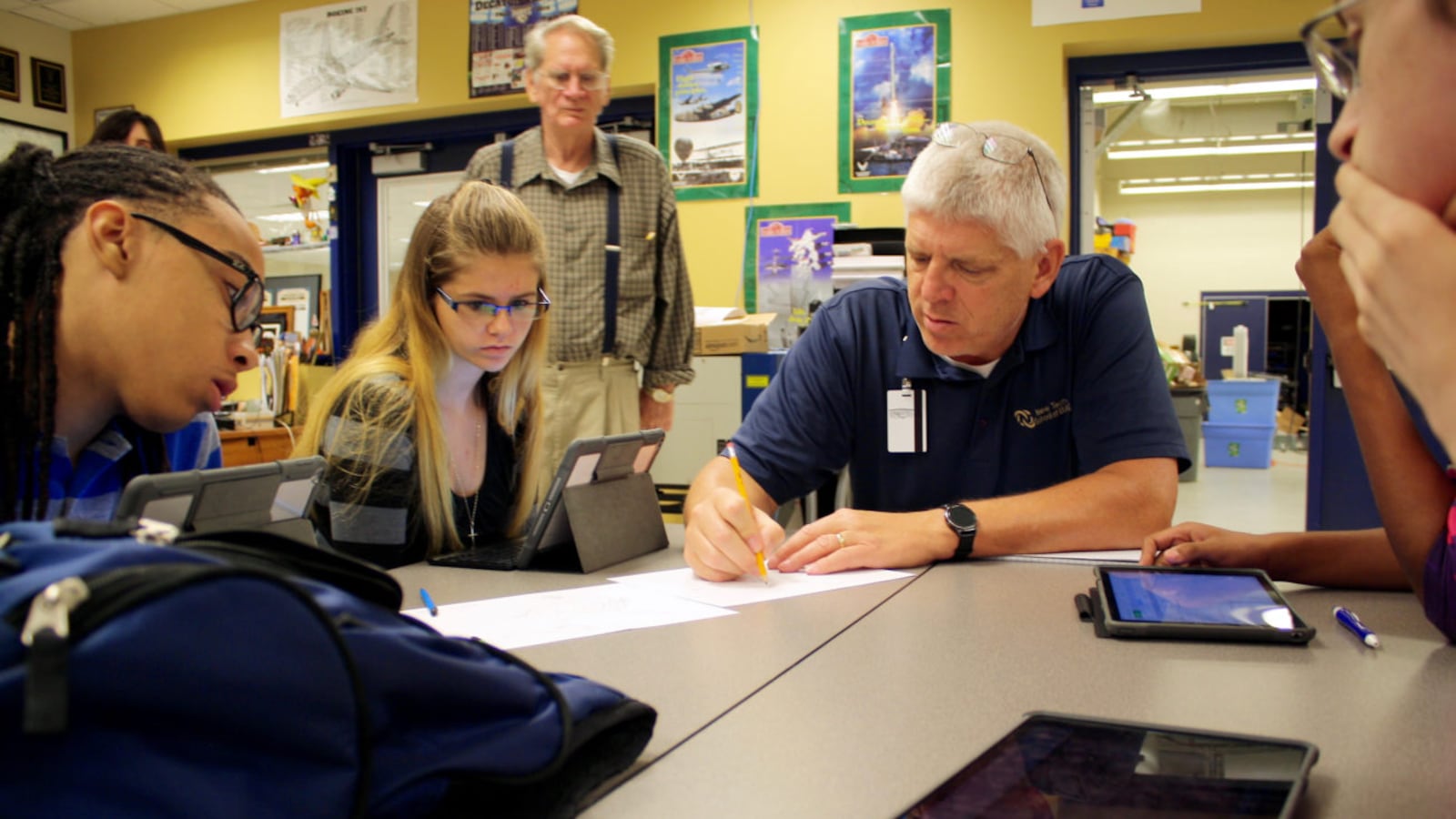An Indianapolis school district will get more flexibility under a new state initiative that aims to change how students learn and prepare for jobs.
Decatur Township will join six other districts in a coalition that allows them to bypass certain state rules so students get more practical experience and share ideas to form more work-based study opportunities with local employers. The coalition was created by a law passed this year that is based on model law from one of the nation’s most influential conservative organizations, the American Legislative Exchange Council, known as ALEC.
The main rules that the coalition districts are looking for extra latitude on include allowing students to waive classes, such as Algebra 2, so they can gain work experience that might lead to a job or industry credential. The coalition would also like extra flexibility with teacher licensure so they can bring into the classroom experts in subjects affiliated with career and technical education.
Decatur Superintendent Matt Prusiecki said the coalition is working to put some of the new plans and programs in place for next school year. Being part of this collaborative group actively sharing ideas, he said, might help them stretch their resources and find new ways to give students more freedom to figure out their post-high school plans.
“Instead of saying, ‘We can’t do this because,’ it’s more of a, ‘Why can’t we do this? How do we get around these obstacles’?” Prusiecki said.
The Indiana State Board of Education gave the coalition, called the “Coalition of Continuous Improvement School Districts,” the go-ahead to start planning at its meeting earlier this month. Rep. Bob Behning, the bill’s author, said this effort goes beyond just Indiana, as extending opportunities for career and technical education is becoming increasingly popular nationwide.
“Work-based study is definitely a buzz word around the country,” Behning told state board members. “How do we make school, and develop those skills in students, where everyone is not necessarily going to get a baccalaureate degree, but certainly can come out of school with a skill that will provide them employment outside of K-12.”
Earlier this year, when lawmakers were debating the bill, several Hoosier educators testified that courses like Algebra 2, which lawmakers made a requirement for graduation in 2007, interfere with students pursuing other opportunities — particularly if they are not interested in earning a four-year college degree.
Some schools, such as Noblesville High School, have already created Algebra 2 alternatives that some educators say are just as rigorous as the course, but have more real-world applications. Batesville, one of the districts that championed the original legislation, has also already created the kinds of local business partnerships that Prusiecki said he and other coalition members are looking to as examples.
Prusiecki said students would still have to follow the state’s new graduation pathways requirements. But with the freedom the coalition allows, they could substitute traditional courses in math or science with experiences in internships that could lead to a career.
“How do we connect (students) with these partnerships and relationships with businesses so we can get them high-wage, high-demand jobs?” Prusiecki said.
The coalition is also requesting the ability to create its own district teacher licenses. The licenses don’t have to meet the usual accreditation requirements from the Council for the Accreditation of Educator Preparation. Teachers would still have to follow rules for criminal background checks, but the coalition members hope the licenses would have fewer requirements and let more people teach classes in subjects affiliated with career and technical education.
“The current ways (to be licensed) just seem to be a little cumbersome,” Prusiecki said. “This coalition is just trying to make opening those doors a lot wider so we can get things done possibly more efficiently, faster, and even possibly on a larger scale.”
But the state already has a workplace specialist permit, which can be earned by a person with experience in skilled trades or areas relevant to classes in a career center or a high school career and technical education program. It doesn’t require a college degree, but it does require applicants to pass a training and a basic skills exam. The coalition district law waives those rules and others for prospective educators.
Teresa Meredith, president of the Indiana State Teachers Association, said she’s confused by the licensure waiver, which was not discussed during the state board meeting earlier this month or during the legislative session.
“I’m not going to pass a lot of judgement until I know more, but I need to hear why they need a different path that isn’t already available,” Meredith said. “There’s already such flexibility, it’s not super rigid with a workplace specialist.”
The coalition would still require that teachers be allowed to negotiate pay and benefits through their union.
The coalition districts still need the state to sign off on specific plans for what class pathways, teacher license options, or credential partnerships and opportunities they want to offer.
There’s an accountability piece to the coalition as well, Behning said, that gives districts more flexibility if they can show their efforts are leading to students getting jobs. Each year, the coalition must make a report to lawmakers on teacher qualifications and how the coalition affects certain metrics, such as graduation rate. Those metrics also have to include how much coalition work is costing each district, what work-based study opportunities students get from employer partners, and whether students are ultimately employed by partner organizations full-time.
Prusiecki did not want to reveal who the district is considering partnering with, but those agreements are in the works, and plans will need to be made quickly before the next school year.
“There’s a lot of risk-taking in this, and the piece of it, too, is that we’re putting a spotlight on ourselves as a school district,” Prusiecki said. “We’re willing to step out there and take those risks so we can help our communities.”

